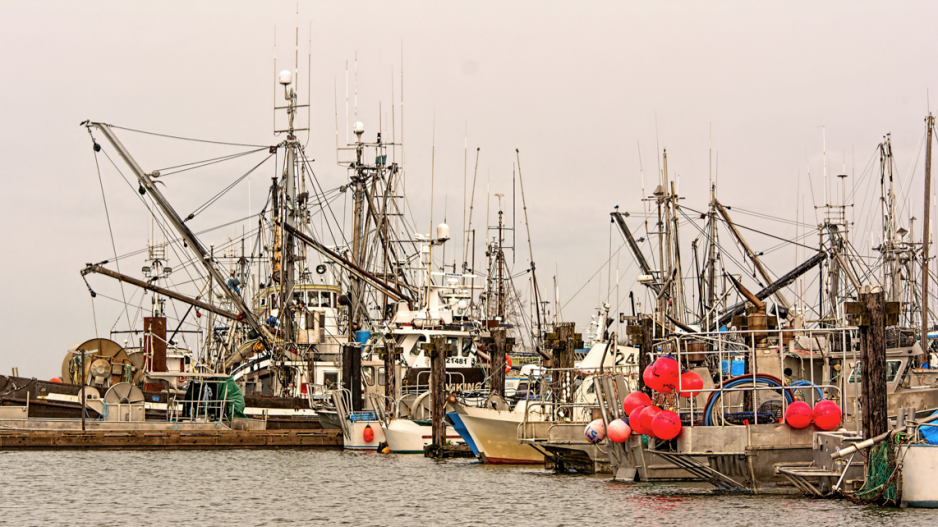Canada’s West Coast fishery could be in for a sea change, if Parliament accepts and implements 20 recommendations being made by the Standing Committee on Fisheries and Oceans.
The committee is recommending sweeping changes to the way commercial fishing licences and quota are owned in B.C. to address concerns of monopolization – including quota ownership by foreign investors who may never have set foot on a fishing boat or in Canada – that has turned commercial fishing in B.C. into “a modern day feudal system.”
That description came from Ken Hardie, the Liberal MP who is responsible for the standing committee undertaking a major review of the way the commercial fishing sector is managed in B.C.
“We heard enough to conclude that there are many structural problems in our West Coast fishery,” Hardie said in a press conference earlier this week, when the recommendations were tabled.
While commercial fishermen in B.C. applaud the committtee’s recommendations, it may not sit well with corporate owners, like Jimmy Pattison’s Canadian Fishing Company (Canfisco), which owns a significant amount of fish quota in B.C.
“This is a huge change,” said Jim McIsaac, Pacific vice president of the Canadian Independent Fish Harvesters’ Federation. “The direction that the industry is going is driving the independent harvester – the small boat fisherman, the Ma and Pa operations – out of business on the coast.”
Phil Young, senior director for Canfisco, agrees that the what is proposed is a "huge change." He confirms that Canfisco processes 38% to 40% of the salmon caught by the seine fleet, but said 14 of the boats delivering salmon are independently owned. Canfisco owns 11 of the boats, and co-owns 13 partner boats, in which Canfisco owns half of the quota.
While he said many of the recommendations seem reasonable, he said implementing all of them is going to be a challenge.
"They set an end goal on some of these things," he said. "It doesn't mean they're all something that can be implemented or should be implemented, once they look at it."
The ownership of licences and quota in B.C. is different from Atlantic Canada and Alaska, where the people who do the fishing – commercial boat owners – tend to own the licences and quota.
The committee is recommending an analysis of the west and east coast fisheries in order to put them on a level playing field. McIsaac interprets that to mean that the West Coast could see “fleet separation.”
“In Atlantic Canada they have a thing called fleet separation, where the processors are not allowed to own the licences,” McIsaac said. “That means that the licences are in the hands of fishermen, and then the fishermen have that leverage to negotiate with processors, which drives price.
“And the same thing in Alaska. It’s illegal for processors to own licences in Alaska for most of the fisheries. As a result there’s a strong competition for fish.
“That’s not what is happening in British Columbia. A lot of the value of the fish is going offshore and being realized somewhere else.”
In his press conference Hardie said fish are supposed to be common property, but that foreign companies can own and trade quota for B.C. fish like stock. He said the government doesn’t even know, in some cases, who owns the quota.
“More troubling is the notion we heard in testimony that offshore money laundering may be doing to the price of quota what we suspect it’s done to real estate prices in B.C.,” Hardie said.
The system in B.C. has evolved in such a way that small independent fishermen in B.C. have become the modern day equivalent of sharecroppers, in which they have to pay the owners of the quota for the right to fish. The quota owners end up taking 70% to 80% of the value of the catch, up front, Hardie said.
“In some fashion, it looks like we’ve created a modern day feudal system,” Hardie said.
“It was reported last year by one of the fish licence brokerage firms that, of the $60 million in transactions that they handled, half of the transactions were from foreign buyers,” McIsaac said.
In other words, half of the quota in those transactions were held by foreign owners.
“So it’s fine to sell fish, our products internationally, but what we’re selling is the access to the fish,” McIsaac said.
The committee recommends that no new quota be issued to foreign owners and that new limits be placed on the amount of quota or number of licences that can be owned by an individual or entity.
Other recommendations include:
• a loan and mentorship program to help young people enter the fishing industry;
• a buy-back program allowing current license holders to sell boats and quota to younger people who want to enter the commercial fishing industry; and
• expanded value-added fish processing in BC.




